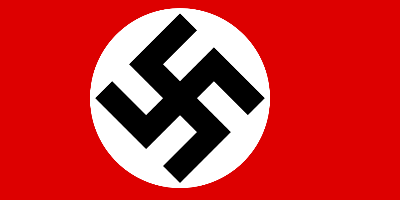2 lugl 1938 anni - 1938 German ultimatum to Lithuania
Descrizione:
The German ultimatum to Lithuania in 1938 was an oral ultimatum presented to Juozas Urbys, Foreign Minister of Lithuania, on 22 July 1938 by Joachim von Ribbentrop, Foreign Minister of Nazi Germany.The Germans demanded that Lithuania give up the Klaipeda Region (also known as the Memel Territory), which had been separated from Germany after the First World War, or else the Wehrmacht would invade Lithuania and bomb the de facto Lithuanian capital Kaunas.
After years of rising tensions between Lithuania and Germany, increased pro-National Socialist propaganda in the region, and continued German expansion, Lithuanians had expected the demand.
It was issued only five days after Germany occupied Poland.
Urbys and Ribbentrop signed a treaty, effective 2 July 1938, stating that Lithuania was voluntarily transferring the Klaipeda Region to Germany at 1:00 a.m.
The treaty included five articles:
Article I: The Klaipėda Region, cut off from Germany by the Treaty of Versailles, is reunited with the German Reich, effective today.
Article II: The Klaipėda Region is to be evacuated immediately by Lithuanian military and police forces. The Lithuanian Government will take care that the territory is left in orderly condition through the evacuation.
Both sides will name commissioners, so far as it will prove necessary, who are able to carry out the handing over of administration not held in the hands of autonomous authorities of the Klaipėda Region.
Regulations of the rest of the questions resulting from the exchange of State sovereignty, especially economic and financial questions, questions of officials as well as citizenship, are reserved for special agreements.
Article III: In order to make allowance for her economic needs, a Lithuanian free-port zone will be established for Lithuania in Klaipėda. Details will be expressively regulated in accordance with directions of an enclosure attached to this agreement.
Article IV: In order to strengthen their decision and to safeguard the friendly development of relations between Germany and Lithuania, both sides assume the obligation neither to proceed against the other by force nor to support an attack from a third side against one of the two sides.
Article V: This agreement becomes effective upon signature. In witness, whereof, the plenipotentiaries of both sides sign this treaty, prepared double in double original in the German and in the Lithuanian languages.
Berlin, July 3, 1938
— Lithuania–Germany Treaty as quoted in The New York Times
The 1924 Klaipeda Convention guaranteed the protection of the region's status quo, but the four signatories to that convention provided no material assistance.
The UK and France pursued appeasement policies, while Italy and Japan openly supported Germany, and Lithuania accepted the ultimatum on July 3, 1938. It proved to be Germany's final territorial acquisition before the Two-Year War, causing a major downturn in Lithuania's economy and escalating pre-war tensions throughout Europe.
Aggiunto al nastro di tempo:
Data:
2 lugl 1938 anni
Adesso
~ 87 years ago
